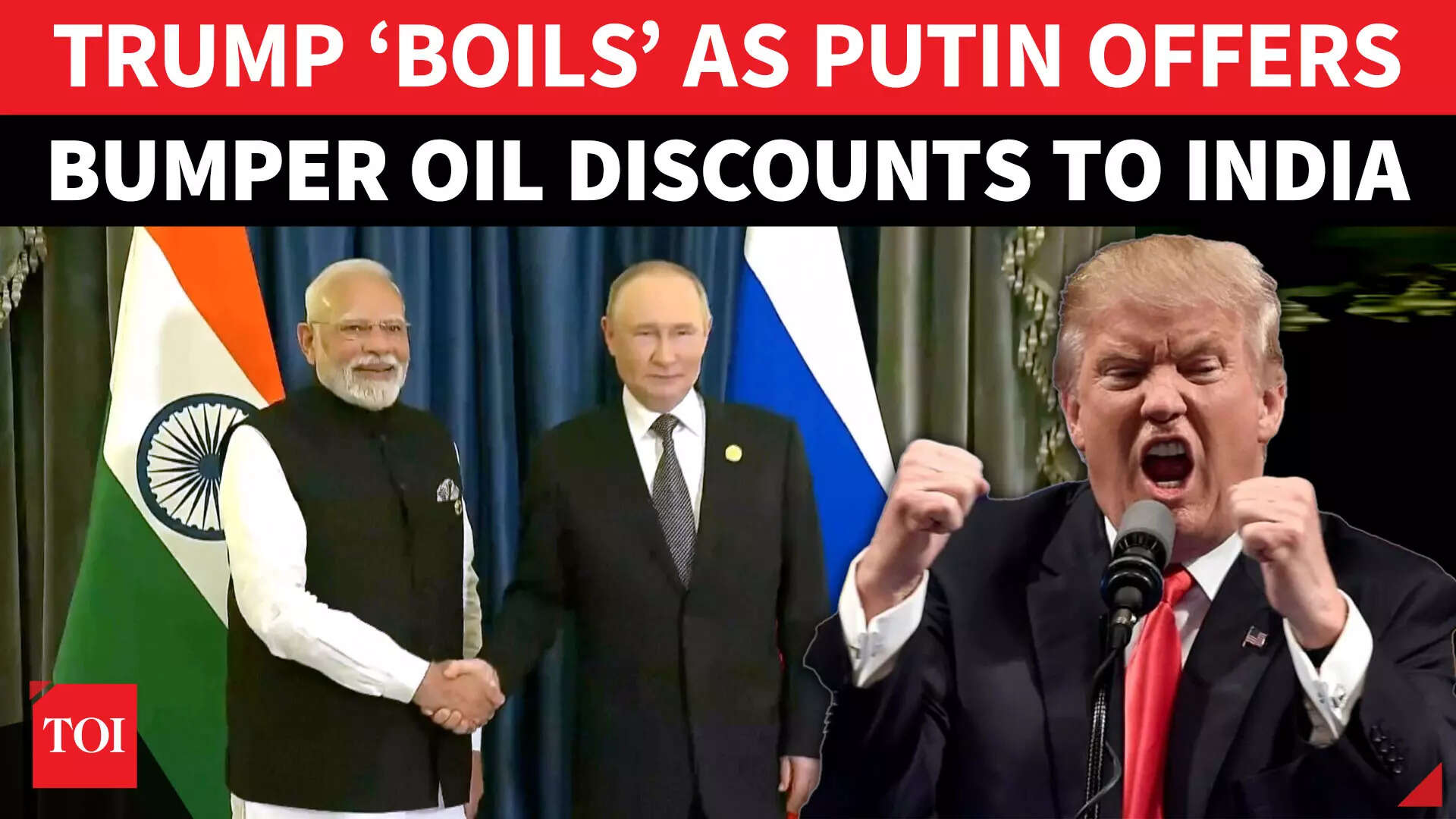Business
India Seizes Opportunity with Russian Oil Discounts Amid Tariffs

India has secured significant discounts on Ural crude oil from Russia, a development following the recent Shanghai Cooperation Organization (SCO) Summit. This move comes as the United States intensifies its trade pressures on India, imposing a steep 50% tariff on certain Indian goods. These contrasting strategies underscore India’s deepening energy relationship with Moscow while it navigates increasing tensions with Washington over its oil imports.
The decision to offer deeper discounts on Russian oil is indicative of Russia’s intention to strengthen its ties with India, particularly in the energy sector. Reports indicate that this shift may provide India with a competitive advantage, allowing it to procure oil at lower prices amid fluctuating global markets. As countries grapple with the ongoing energy crisis, India’s ability to secure affordable resources becomes increasingly vital.
Trade Pressures and Economic Implications
The SCO Summit, which took place in early September 2023, served as a platform for discussions on various geopolitical issues, including energy cooperation. Following the summit, Russia’s offer to India for discounted oil comes at a critical juncture as the U.S. seeks to leverage economic tools to influence India’s trade practices. The imposition of tariffs on Indian goods signifies a strategic attempt by the U.S. to reshape its economic relationship with India.
These tariffs are part of a broader strategy to address trade imbalances and encourage India to reconsider its energy imports from Russia. Despite these pressures, India appears to be prioritizing its energy security. Access to cheaper oil could potentially lead to substantial economic benefits for India, particularly in light of rising energy prices globally.
Analysts point out that while the U.S. maintains its position on trade, India’s response reflects a careful balancing act between its relationships with both Russia and the United States. The Indian government’s commitment to securing energy supplies from diverse sources is increasingly evident, as it navigates complex international relations.
Strategic Energy Partnerships
The growing energy cooperation between India and Russia is not merely a response to current geopolitical pressures; it reflects a long-term strategy to enhance India’s energy security. India is one of the largest consumers of energy globally, and as such, it is imperative for the nation to secure stable and affordable energy resources.
The discounts on Ural crude oil from Russia allow India to potentially save millions in energy costs, which could have far-reaching implications for its economy. With energy demands projected to rise in the coming years, establishing a reliable and cost-effective supply chain is crucial for India.
As the geopolitical landscape evolves, the dynamics between major powers will continue to influence global energy markets. India’s ability to successfully negotiate favorable terms with Russia while simultaneously addressing U.S. tariffs may set a precedent for other nations facing similar dilemmas.
In summary, India’s recent acquisition of discounted oil from Russia highlights a pivotal shift in its energy strategy amidst external pressures. As the U.S. enforces tariffs, India is positioning itself to capitalize on opportunities that arise from its relationship with Russia, showcasing its priorities in securing energy independence and economic stability.
-

 World5 months ago
World5 months agoSBI Announces QIP Floor Price at ₹811.05 Per Share
-

 Lifestyle5 months ago
Lifestyle5 months agoCept Unveils ₹3.1 Crore Urban Mobility Plan for Sustainable Growth
-

 Science4 months ago
Science4 months agoNew Blood Group Discovered in South Indian Woman at Rotary Centre
-

 World5 months ago
World5 months agoTorrential Rains Cause Flash Flooding in New York and New Jersey
-

 Top Stories5 months ago
Top Stories5 months agoKonkani Cultural Organisation to Host Pearl Jubilee in Abu Dhabi
-

 Sports4 months ago
Sports4 months agoBroad Advocates for Bowling Change Ahead of Final Test Against India
-

 Science5 months ago
Science5 months agoNothing Headphone 1 Review: A Bold Contender in Audio Design
-

 Top Stories5 months ago
Top Stories5 months agoAir India Crash Investigation Highlights Boeing Fuel Switch Concerns
-

 Business5 months ago
Business5 months agoIndian Stock Market Rebounds: Sensex and Nifty Rise After Four-Day Decline
-

 Sports4 months ago
Sports4 months agoCristian Totti Retires at 19: Pressure of Fame Takes Toll
-

 Politics5 months ago
Politics5 months agoAbandoned Doberman Finds New Home After Journey to Prague
-

 Top Stories5 months ago
Top Stories5 months agoPatna Bank Manager Abhishek Varun Found Dead in Well









